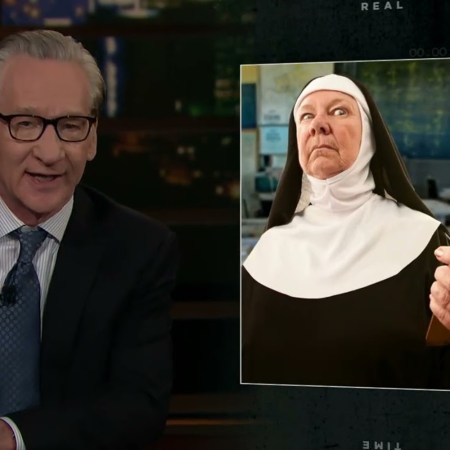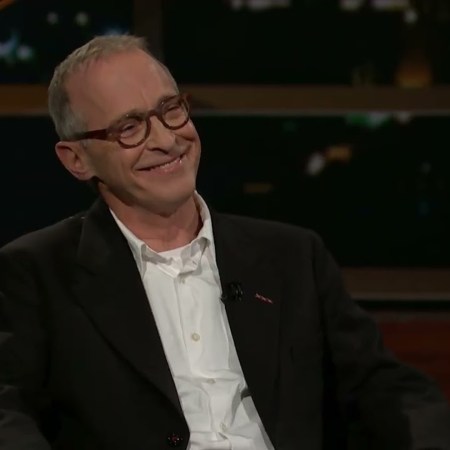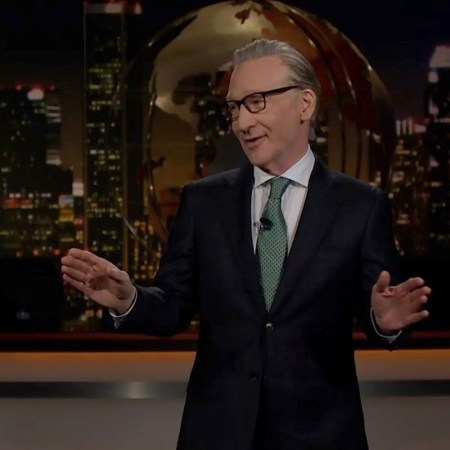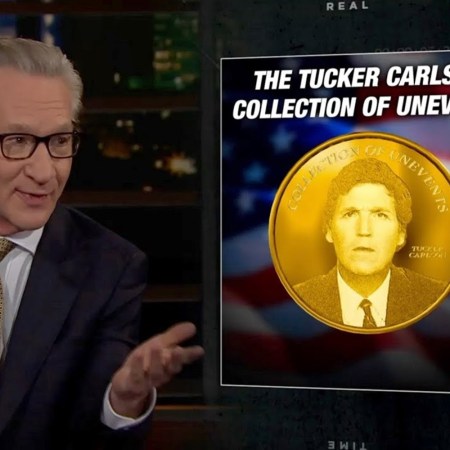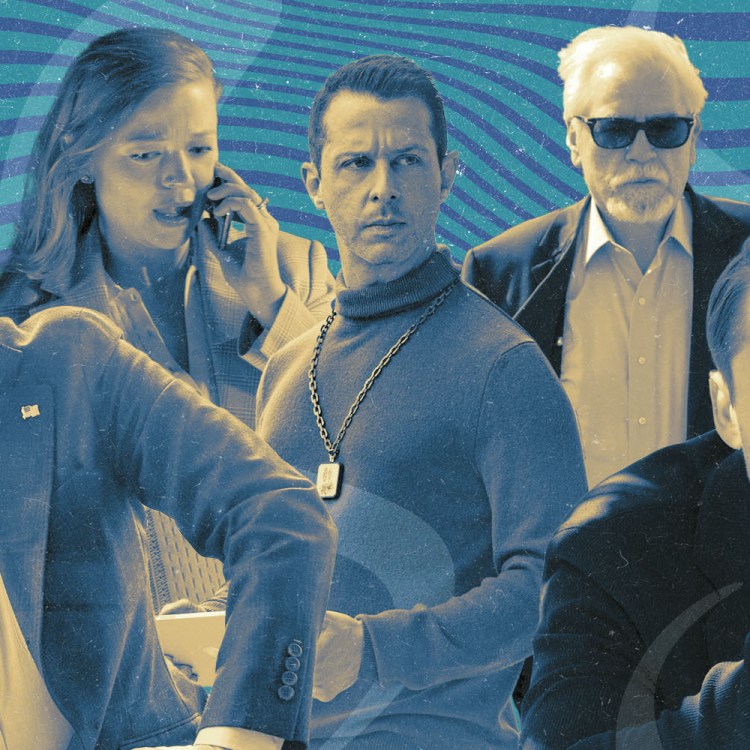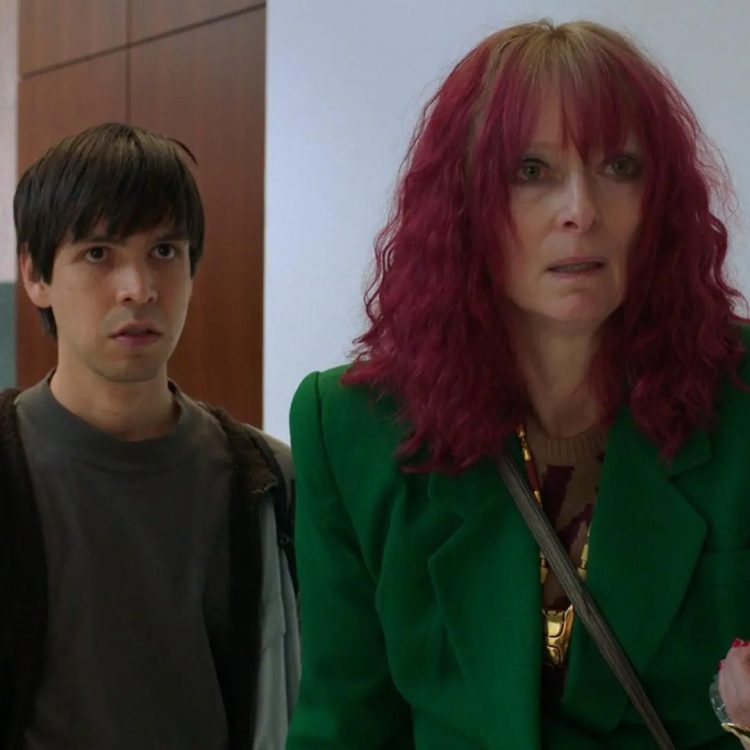After a few weeks off, Real Time With Bill Maher returned on a late July night. Maher’s comments in his opening monologue that Los Angeles had dodged an indoor mask mandate got intense applause — though his comments that Beverly Hills said they wouldn’t comply with such a mandate got a more bewildered reaction from host and audience alike. Quoth Maher, “They said, ‘Our citizens have spent too much on their faces to cover them up.’”
Maher segued from there to a discussion of monkeypox, and from there to a discussion of monkey attacks — specifically, the ones that took place recently in the city of Yamaguchi, Japan.That wasn’t all that Maher covered during his monologue; Donald Trump’s recent speeches and the LIV Golf tour also came up for various digs — which seemed eminently understandable in both cases.
Maher’s first guest was Chris Cuomo, who’s in the process of attempting a comeback with a new podcast. Cuomo spoke to Maher about “wanting to do what you do.” Maher noted that CNN’s ratings had been down since Cumo was fired, but Cuomo didn’t seem interested in schadenfreude.
Conversation turned from there to Chris’s brother Andrew. “I’ve never seen a fall that steep,” Maher observed. “It’s his job to tell his own story and figure out what he wants his future to be,” Cuomo said.
Maher went on to address Cuomo’s firing from CNN, and spoke of politics and the media “merging.” Cuomo spoke of wanting to try to address an audience, and compared the evolution of partisan politics in the country to his own support for the New York Jets, where supporting your team can overtake the facts on the ground.
“Culturally, we have to end the two-party system,” Cuomo said — and went on to endorse ranked-choice voting. He then shared some memories of his father — and offered his explanation for why a Mario Cuomo presidential campaign never happened — and spoke about the importance of “building a community.”
The episode’s panel consisted of author John McWhorter and Politico’s Sam Stein. The first item up for discussion was the Inflation Reduction Act, and the various components, from prescription drug price negotiations to support for electric cars and pollution reduction. “This is what mature governing used to look like,” Maher said — and speculated how this might affect Joe Biden’s approval ratings and prospects for 2024.
The panel eventually shifted their focus to the January 6th hearings and the information that’s been revealed there. Maher, McWhorter and Stein discussed the possibilities that the committee’s hearings could lead to the Justice Department pursuing a case against former president Trump. For his part, McWhorter stated that “this belief in Trump” had become something akin to a religion.
Maher then brought up Herschel Walker’s Senate candidacy, and his penchant for bizarre and inaccurate statements on the campaign trail. McWhorter has also been critical of Walker, and continued that criticism on Friday, noting that Walker “would lose an argument with a box of air.”
From there, the subject turned to monkeypox and the health messaging surrounding it. Maher was critical of public health agencies using the phrase “men who have sex with men” — and while that’s in keeping with some of Maher’s societal critiques this season, it’s also unclear if this is all that much of a controversy. (A World Health Organization advisory from May was directed at “gay, bisexual and other men who have sex with men,” for instance.)
That brought Maher to a more ambitious discussion of the language by which different people refer to different things in terms of politics and public policy. Donald Trump’s threat of a lawsuit to CNN was one of the things Maher brought up as part of the larger conversation. Stein pointed out that the issues Maher brought up were frequently discussed in editorial settings. “There are always going to be competing terms,” McWhorter said.
This episode’s Overtime segment found the panelists discussing Andrew Yang’s foray into third-party politics and the role of political advertising. Stein argued that ads create a sense of fear in voters — which can reduce the odds of a third party making headway. The possibility of the federal government legalizing marijuana — and the potential benefits for the Biden presidency — also came up.
Maher addressed layoffs at Shopify and Russia planning to leave the International Space Station early on in New Rules. The bulk of the segment found Maher considering a milestone the planet will reach in November — when it will be home to eight billion people. As Maher pointed out, in an era of climate change and resource shortages, this does not represent good news.
Cue the clip of Elon Musk talking about population collapse; cue Maher having a dig at Musk’s expense. Maher argued that finding space for more people isn’t the problem; instead, the resources they’ll require are. He compared the thought process to the one that led to BitCoin: “We haven’t thought it through, but who cares.”
“Stop spawning, people!” Maher said — and criticized an economic model that required an ever-growing population. It was one of the more engaging New Rules segments of the season — focused, without forays into bothsidesism or digs at Millennials. It seemed designed to prompt debate, though it’s not yet clear what form that might take.
Thanks for reading InsideHook. Sign up for our daily newsletter and be in the know.

